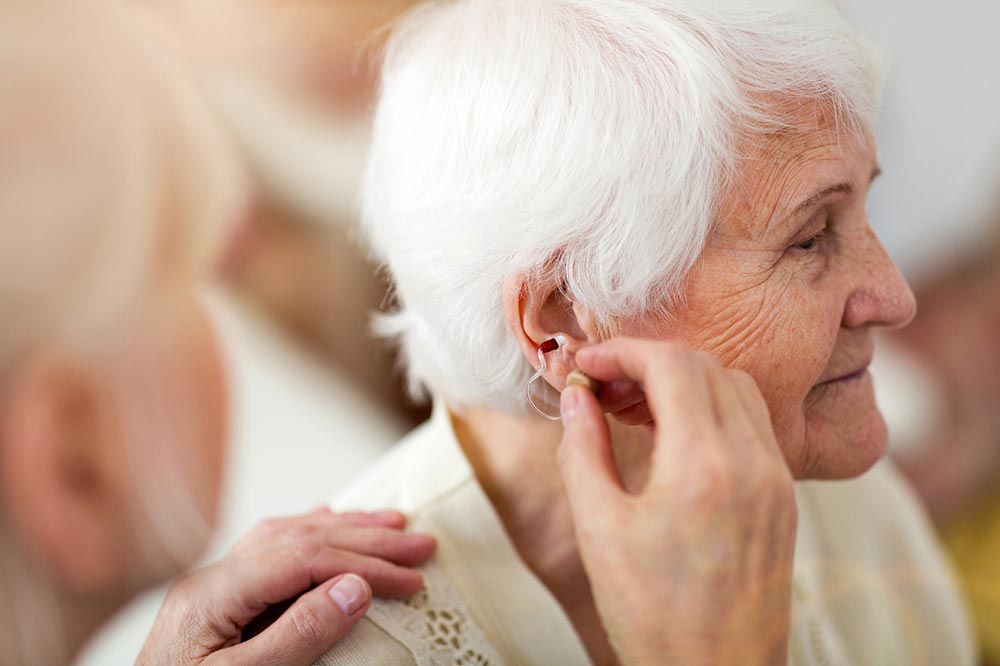Table of Contents
You might have read our article about tinnitus and COVID-19, but we thought we could delve a little deeper into the effects of the virus on one’s hearing.
We know that COVID-19 can cause a loss of taste and smell, but is it possible to develop tinnitus as a result of the virus?
Is there a link between COVID-19 and tinnitus?
While there is no scientific evidence to prove that COVID-19 causes tinnitus, there are some theories that explain why people with the virus may be experiencing tinnitus symptoms.
Hearing loss is one of the most common symptoms of COVID-19. A study by researchers in Wuhan, China found that more than half of patients diagnosed with the virus experienced hearing loss. In most cases, people have reported a temporary hearing loss which has improved over time once their body has recovered from the virus.
The disruption in hearing caused by COVID-19 can lead to changes in brain activity, ultimately causing tinnitus. Although you may be recovering from your hearing loss, these changes in brain activity can continue even after your other symptoms fade away.
What is tinnitus?
Tinnitus is a disorder that causes you to hear ringing, roaring or whistling sounds. It’s a very common condition, affecting millions of people worldwide. The exact cause isn’t known; however, doctors believe it’s caused by changes in blood flow within the ear.
Symptoms include:
- Feeling like your ears are going to ring or pop
- Hearing rings or popping noises at certain times of the day
- Ringing in both ears or a feeling of fullness in one ear
- Sudden hearing loss in one ear. This happens most often when you go to sleep at night and wakes you up in the morning. It may also happen if you get injured and blood rushes to your ear.
- Sometimes tinnitus can be so loud that it interferes with your ability to hear. If this occurs, your ability to hear may get better over time.
How tinnitus can be a sign of hearing loss
Many people experience tinnitus occasionally without it being a sign that they have hearing loss. Tinnitus is generally more common with age because hearing loss increases with age.
Possible causes of tinnitus include:
– Earwax build-up
– Exposure to loud noises
– A side effect of prescription drugs
Tinnitus can also be a symptom of a more serious health condition, such as:
– Periodic tinnitus that comes and goes could be caused by Meniere’s disease, which affects the inner ear and causes vertigo, ringing in the ears and hearing loss.
– Tinnitus that comes on suddenly could be a sign of very high blood pressure, an aneurysm or a tumor on the acoustic nerve.
How circulatory problems can cause tinnitus
Can Tinnitus be linked to COVID-19?
No, tinnitus cannot be linked to COVID-19. However, it can be a symptom of a medical condition in your ear that could make you more susceptible to being diagnosed with COVID-19.
We recommend that anyone who is experiencing tinnitus consult with a physician about hearing loss, which can be caused by long-term exposure to loud noises, as well as age-related conditions and certain medications. We also recommend that anyone experiencing tinnitus and hearing loss see an audiologist for a complete hearing evaluation, who can examine the ears and provide treatment options.
Treatment options for tinnitus
There are many treatment options for tinnitus, including some that have not been proven to work. However, medical professionals often recommend that patients try an over-the-counter (OTC) medication before making the jump to a prescription drug.
In general, the goal of therapy is to decrease the response to external noise. This can be achieved through a variety of means, including placing sound-blocking headphones that dampen loud sounds, changing the environment in which the patient lives or working with a counselor who can teach coping strategies.
Many people who are troubled by tinnitus seek out alternative treatment options. These include acupuncture and massage therapy; herbal remedies such as ginkgo biloba and ginseng; and topical creams that can help with pain and inflammation (such as capsaicin).

